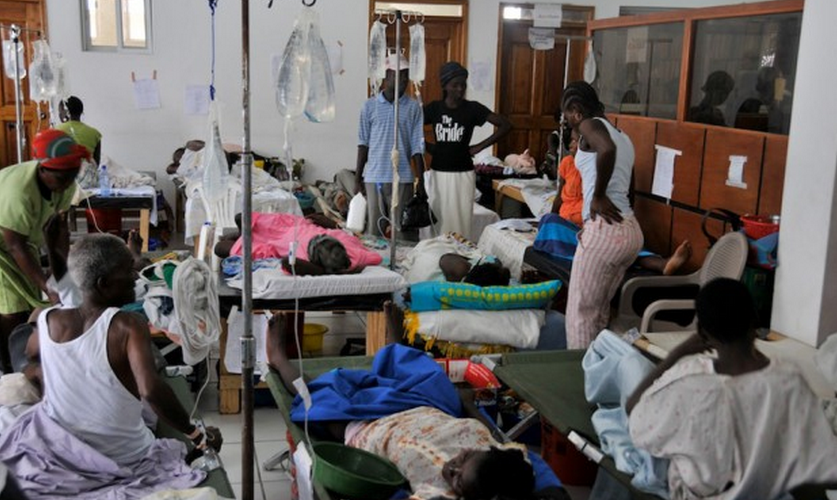St. Nicholas Hospital, St. Marc, Haiti; PAHO WHO
Many of you have likely heard the news that the U.N. has finally admitted its role in the cholera outbreak in Haiti. While it’s “big news”, the U.N.’s role in the disaster is hardly new news.
For the past five years the U.N. has dodged accusations that its Nepali base (established to respond to Haiti’s devastating 2010 earthquake) was the source of the outbreak that sickened close to 1 million people (770,000 is one estimate) and killed nearly 10,000.
When victims petitioned for reparations in November 2011, the U.N. invoked their charter’s clause granting them immunity from lawsuits without admitting any wrongdoing.
The change in tone came just earlier this month when a spokesman for the office of Secretary General Ban Ki-moon issued a statement in which he mentioned the U.N.’s “own involvement” in the crisis saying: “Over the past year, the U.N. has become convinced that it needs to do much more regarding its own involvement in the initial outbreak and the suffering of those affected by cholera.”
While the use of the phrase “our involvement” has created headlines worldwide, the impact of the U.N.’s admission is undoubtedly weakened by the Court’s August 19th decision that upheld the U.N.’s immunity from claims.
Given the Court’s most recent upholding, the plaintiffs have 90 days to decide whether or not to file an appeal with the Supreme Court; meanwhile the number of new Cholera victims will continue to grow in Haiti for the foreseeable future.
Following this story, I can’t help but think that the U.N.’s involvement in Haiti’s Cholera epidemic is a devastating example of what it looks like to hide behind good-intentions.
While the lawyers continue to fight for Haiti’s voice in the higher courts, we might all be reminded that our work in Haiti must surpass “good-intentions,” as they are no absolution to the damage we can cause when we fail to respect and listen to the communities we serve.
Written by Erin Nguyen on August 25, 2016

